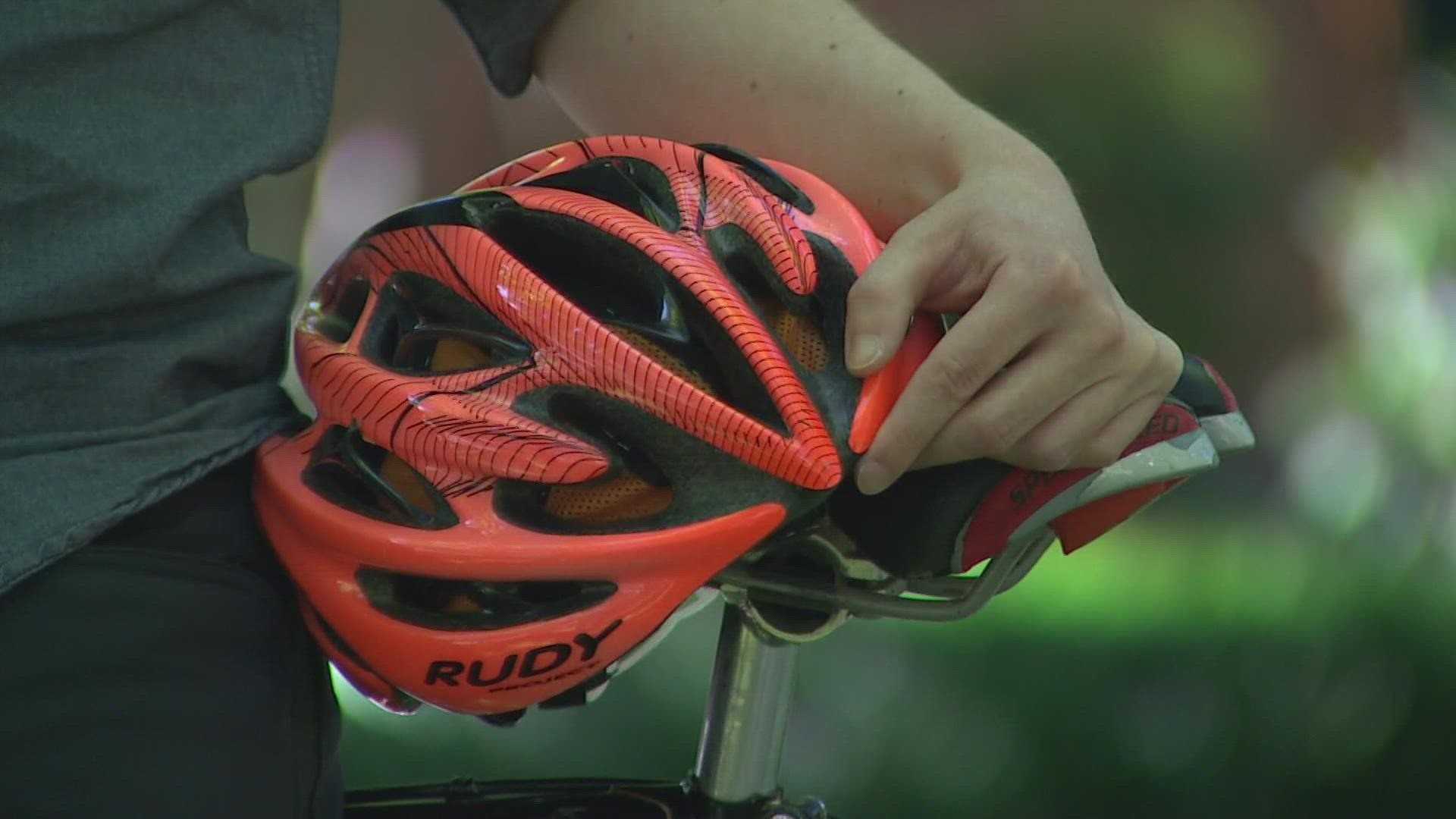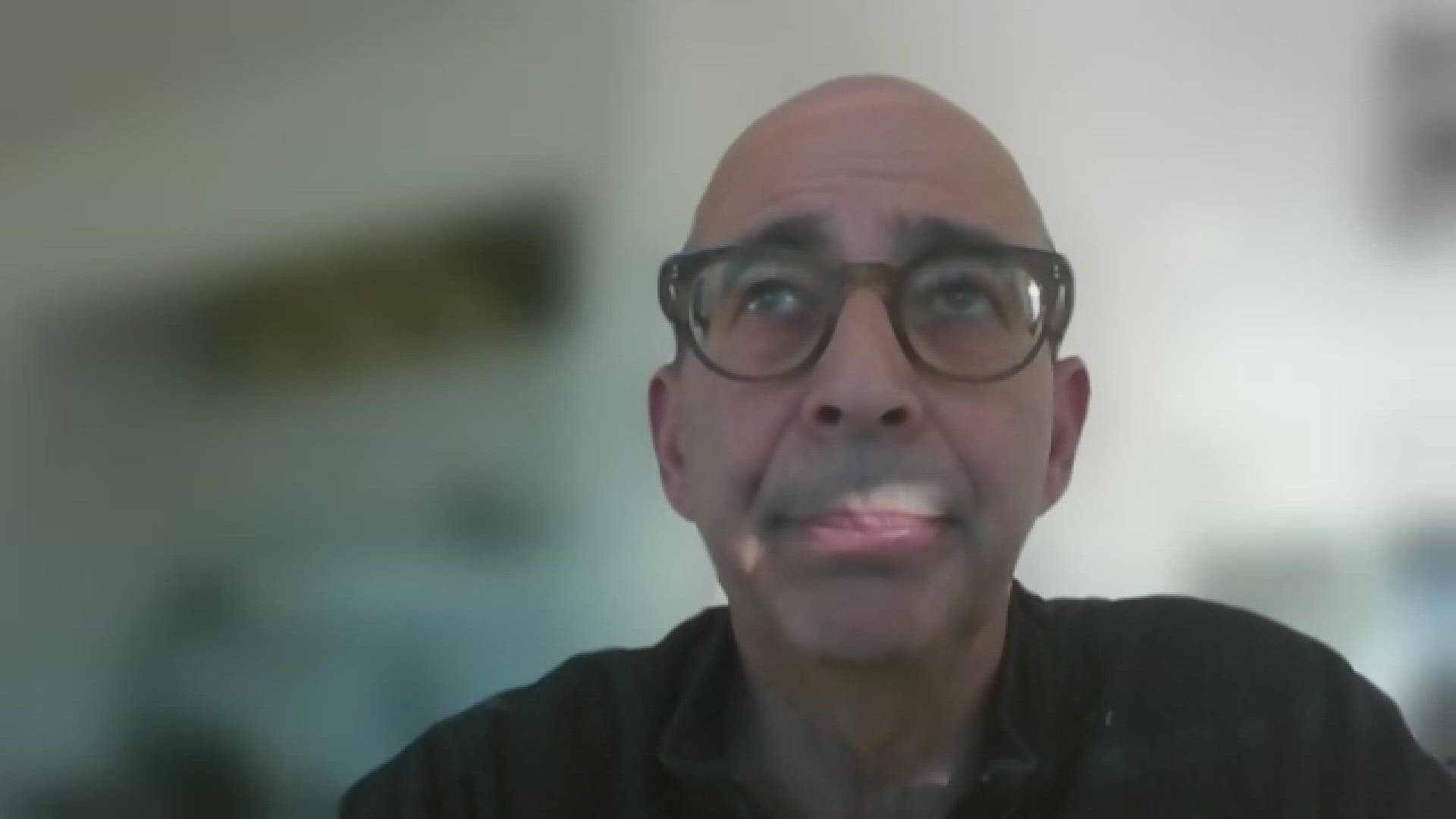KING COUNTY, Wash. — King County's Board of Health voted 11-2 to repeal a law mandating helmet-wearing for bicyclists and passed a resolution emphasizing the continued need for helmet use education Thursday.
Board members who supported the repeal cited racially disproportionate enforcement of the law, while opponents of the repeal asked to keep it intact while calling for a county-conducted equity impact study to be completed and released.
Seattle Greenways, Cascade Bicycle Club and Real Change were among the groups that pushed for the repeal, following reports by Central Seattle Greenways and Crosscut alleging disproportionate enforcement among communities of color and people experiencing homelessness.
A resolution to repeal the punitive portions of the law noted King County's declaration of racism as a public health crisis in June of 2020.
Speakers on both sides of the issue gave input during the public comment section of Thursday's meeting.
Opponents of the repeal included physicians from Harborview Medical Center and representatives from the Brain Injury Alliance of Washington, who argued that the county should first conduct a full equity impact study. Some physicians also argued against the repeal altogether, saying that education without a mandate is not enough.
The law previously covered all cities in King County, including Seattle. While some cities have their own law in their municipal codes, the Seattle Department of Transportation says Seattle does not have one.
Still, SDOT says it encourages people biking to wear helmets and has partnered with community-based organizations to increase access to helmets, especially for BIPOC, low-income, and unhoused community members.
A spokesperson for SDOT wrote:
"We’ve been following discussions at the King County Board of Health regarding a repeal of the helmet law. In many ways, they mirror conversations we’ve been having as a City around the effect of traffic enforcement on BIPOC, unhoused, and low-income community members. These conversations, in partnership with the Office of the Inspector General and at the Seattle Police Department have led to recent changes in traffic stops, including the deprioritization of helmet use as a primary reason for stopping someone.
The spokesperson said SDOT is moving away from punitive approaches to enforcement that disproportionately burden BIPOC, homeless and low-income community members.
The agency said it is instead shifting toward an "engineering and engagement approach" to increase safety for all travelers, especially BIPOC communities and the homeless. Engineering changes include street redesigns, reducing speed limits, signal timing changes and separate sections of the road for bike riders.
"This will result in streets that are predictable, comfortable, welcoming, and self-enforcing by design."
Councilmember Jeanne Kohl-Wells, who voted against the repeal, released this statement Thursday:
“Today’s deliberation by the King County Board of Health on repealing the King County bicycle helmet law was respectful and thorough, ending in a vote to repeal the law. I was the only vote against the repeal. This issue has been a public policy paradox. While data show that local enforcement of this law has disproportionately impacted unhoused and BIPOC individuals, other data show that helmets save lives with which there’s no disagreement.
As the member who one year ago had requested the Board take up this issue of enforcement bias, I had hoped to find a resolution without fully repealing the law. Many members of the medical community, including from Harborview Medical Center and the University of Washington, as well as parents whose children had suffered traumatic brain injury from not wearing a helmet, shared public testimony opposing the full repeal and instead in favor of working to end the law’s disproportionate application. I offered amendments that aimed to do so, but they did not succeed. While we voted for another resolution to provide education and outreach efforts, I could not in good conscience support a full repeal, as I believe it is premature.
However, I deeply appreciate the thorough investigation of this issue by my colleagues, public health staff, journalists, and community advocates. I brought this issue to the Board of Health last year for a rigorous review, which was done, and look forward to further efforts to increase awareness of the importance of wearing helmets.”



